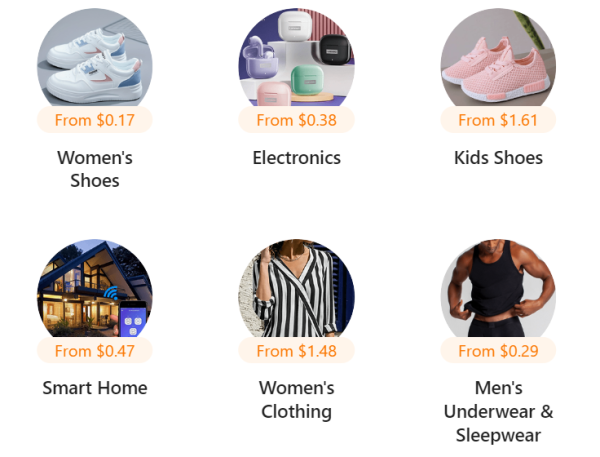If you live in the United States, there’s a good chance you watched at least a portion of the 2024 Super Bowl. If that’s the case, you likely also saw one of three upbeat, colorful advertisements for Temu, a company whose number of app downloads has surpassed even that of Amazon and Walmart.
Why does this matter? Let’s break it down.
Temu’s tagline, “Shop like a billionaire,” seems to suggest that the Chinese company would hawk high-quality, expensive goods, right? In fact, the exact opposite is true; Temu’s claim to fame is offering a wide variety of products at extremely cheap prices. And I mean cheap to the point of absurdity, like a bunion corrector for $1.68 or an electric guitar for $19.53.
You may be wondering how Temu can offer insanely low prices and still afford three Super Bowl ads. The short answer is because its business model revolves around shipping items directly from warehouses and factories, cutting out a substantial amount of money in storage and transportation fees.

The company’s success in the United States has also been attributed to taking advantage of a loophole in U.S. import tax law, which allows companies to bypass import fees for shipments of lesser value. However, this method of cutting corners is slowly seeping into other aspects of Temu’s business.
Despite offering seemingly great deals, Temu has developed a reputation for unaccountable charges, wrong orders, undelivered packages, and poor customer service. In fact, the Better Business Bureau received 900 complaints during Temu’s first 14 months of operation. On the surface, these issues could be exhibited by any company breaking into a new market. After all, any company with such a wide-ranging user base would have these issues, right?
Beneath its shiny, polished surface in TikTok or YouTube ads, however, Temu may be operating on another, potentially more malicious, level.
In November 2023, a class-action lawsuit was filed on the behalf of multiple plaintiffs in Virginia, California, Illinois, and Massachusetts that claim the Temu app is misleading users about how it’s using their data. In particular, experts in the case have found the app to be “purposefully and intentionally loaded with tools to execute virulent and dangerous malware and spyware activities on user devices.”
This brings up a significant issue with modern data security, especially in the age of biometric data and connections like WiFi and Bluetooth. Temu, in particular, asks for at least 24 permissions that may be entirely unrelated to its intended use of online shopping.
Several US lawmakers are also considering Temu to be at “extremely high risk” for involvement with forced labor, along with rival fast-fashion retailer Shein (whose aggressive Instagram and TikTok ads, endorsement of microtrends, and poorly-made synthetic clothing are contributing directly to overwhelmed landfills and increased greenhouse gas output, but that’s a whole other article).
Not to mention the fact that Temu reportedly ships over a million packages every day, contributing to the now unspeakable amounts of jet fuel emissions brought about by international retailers (and Taylor Swift).
So, to users of Temu and any flourishing fast-commerce corporations, I pose this question: How much of ourselves are we willing to give for the sake of convenience?
And how much are your ethics worth to you?































